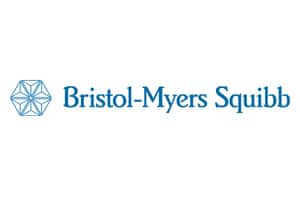
Shortly after closing its takeover of Celgene, Bristol-Myers Squibb has reported a positive trial for liso-cel, one of the CAR-T therapies it acquired as part of the $74bn deal.
The pivotal phase 1 data – reported at ASH – shows that liso-cel or lisocabtagene maraleucel achieved a 53% complete response rate in patients with relapsed/refractory large B-cell lymphomas, setting up regulatory filings later this month.
Overall, 73% of patients in the TRANSCEND NHL 001 study had either a complete or partial response to liso-cel, a CD19-targeted CAR-T which – if approved – would be a third-to-market competitor to Novartis’ Kymriah (tisagenlecleucel) and Gilead Sciences Yescarta (axicabtagene ciloleucel).
The median duration of response has not been reached after follow-up of 12 months, and 60.4% and 54.7% of patients remained in response at six and 12 months, respectively.
The efficacy data looks similar on paper to the two approved CAR-Ts, though in a much larger group of patients, and BMS is also hoping to compensate for being a late entrant into the market with a strong safety profile.
On that front, liso-cel looked pretty good, with low rates of serious (grade 3 or higher) cytokine release syndrome and neurotoxicity – affecting 2% and 10% of patients, respectively – and which could potentially mean the therapy could be given on an outpatient basis.
Rates of serious adverse reactions in other CAR-T trials have tended to be 20-40% for CRS and 10-30% for neurotoxicity. Both side effects can be life-threatening and in some cases even fatal.
There were eight deaths in the liso-cel trial, including four linked to the treatment, but it is well recognised that CAR-T procedures carry significant risks and are used in patients who have generally exhausted other treatment options.
One area of concern was that there were 25 patients who received a CAR-T product that didn’t meet standards, and two manufacturing failures, together accounting for around 10% of the evaluable patient group at ASH.
Before being taken over, Celgene had suggested that liso-cel (formerly JCAR017) had the potential to become a $3bn product.
That would be a phenomenal success for the latecomer. Despite being approved in 2017, Kymriah had sales of $182m in the first nine months of the year from its use in acute lymphoblastic leukaemia (ALL) and diffuse large B-cell lymphoma (DLBCL).
Meanwhile, in the same period Yescarta brought in $183m from its use in DLBCL and other B-cell lymphoma types.
Getting approval for the CAR-T is also a critical component of a potential payout of $6bn in contingent value rights associated with the BMS takeover, so the new data will have sparked celebrations among former Celgene shareholders.
Liso-cel is one of three drugs tied to the CVR payments, and to qualify will have to secure FDA approval by the end of next year.




